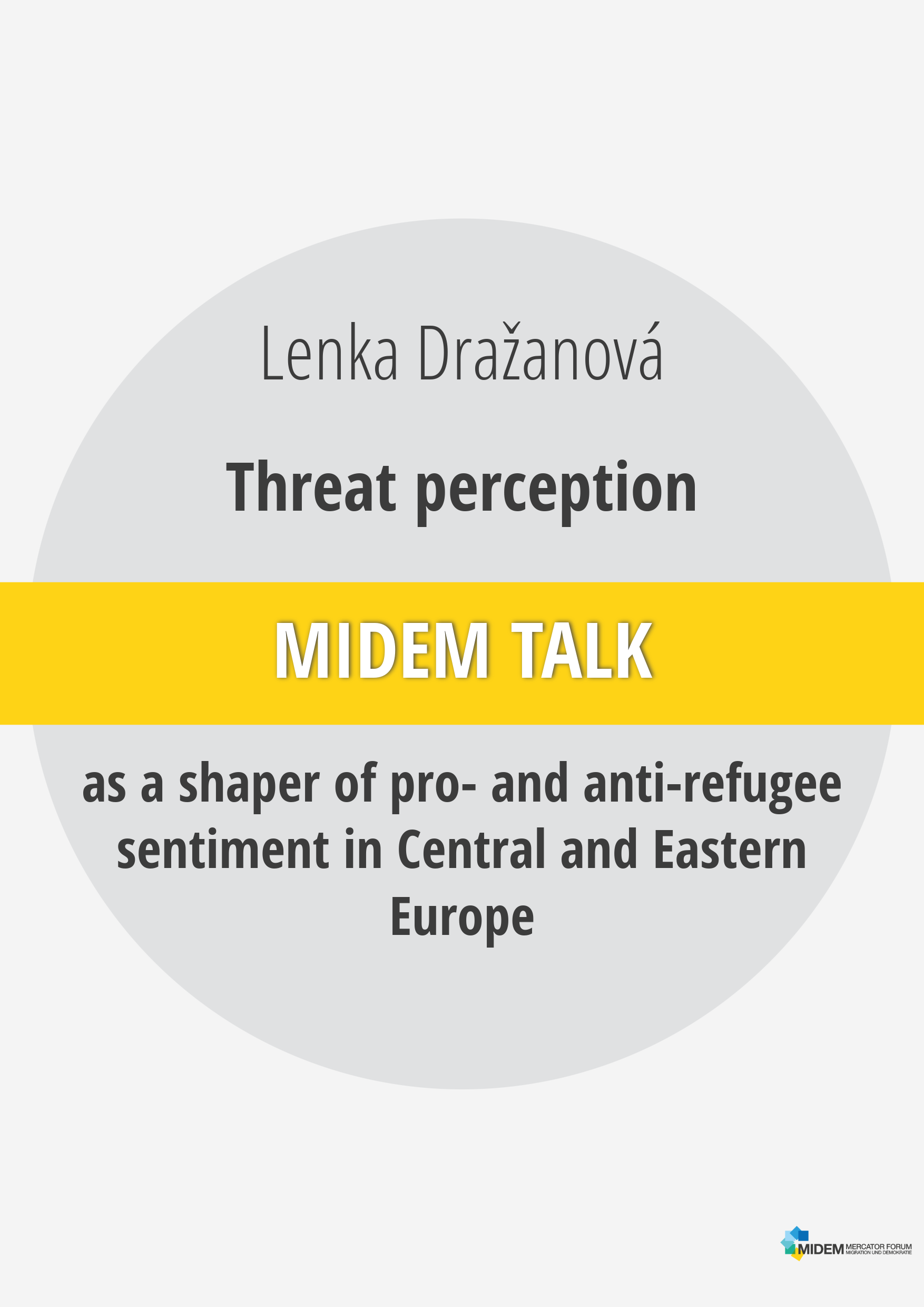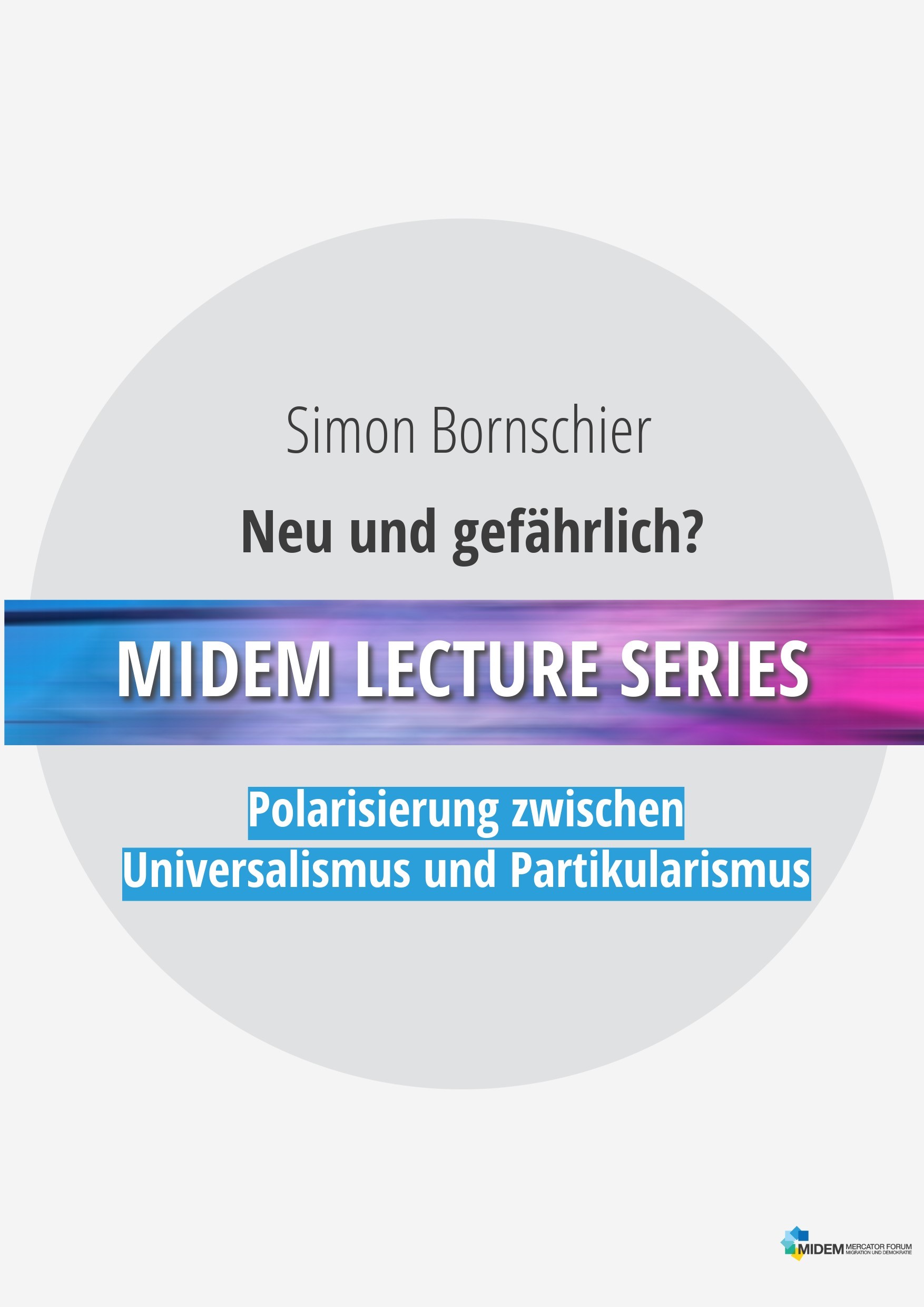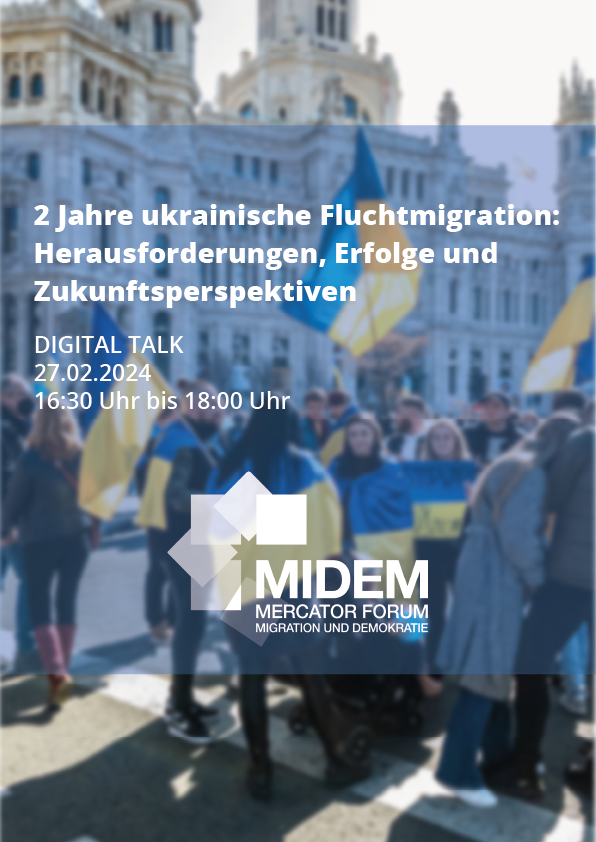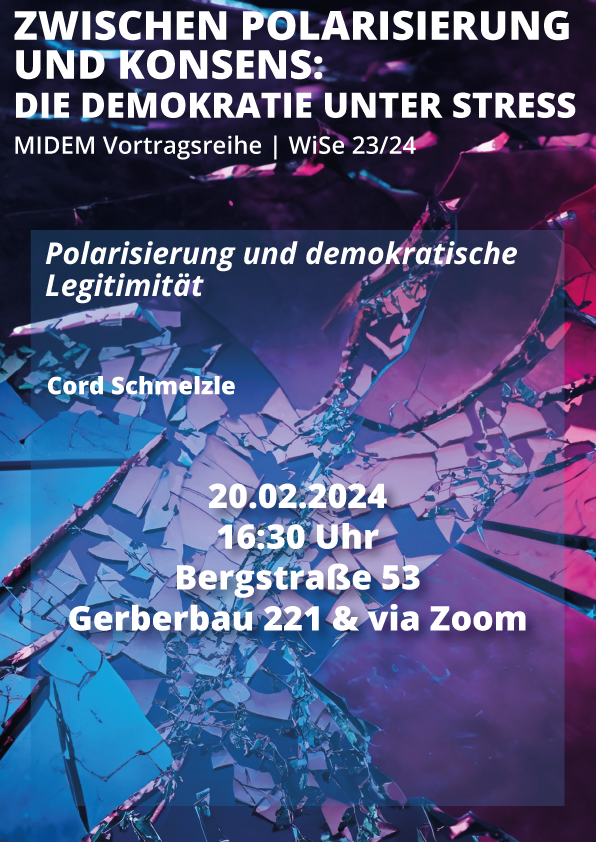Digital Talk: 2 Jahre ukrainische Fluchtmigration Herausforderungen, Erfolge und Perspektiven Im Mittelpunkt des Digitaltalks stehen Probleme und Erfolge bei der Aufnahme und Integration ukrainischer Geflüchteter, insbesondere in den Bereichen Arbeit und Bildung. Mit Dr. Tetyana Panchenko, Nataliya Pryhornytska, Dr. Antje Thiersch und Sebastian Vogel blicken wir aus der Perspektive von Politik, Verwaltung, Wissenschaft und Zivilgesellschaft auf zwei Jahre ukrainische Fluchtmigration in Deutschland zurück. Unser Ziel ist es, nicht nur Probleme zu benennen, sondern auch zu diskutieren, wie die Integration in den Arbeitsmarkt und das Bildungssystem nachhaltig verbessert werden kann. Besonderes Augenmerk legen wir dabei auf das Zusammenspiel von staatlichen und zivilgesellschaftlichen Maßnahmen sowie zwischen den föderalen Ebenen. Wir diskutieren aktuelle Umfrageergebnisse und wollen dabei auch Erfahrungen aus der „Flüchtlingskrise“ einbeziehen und nach Lerneffekten auf staatlicher Seite bei der Erstaufnahme, Unterbringung und Integration von Asylsuchenden fragen. Zu Beginn des Digitaltalks stellt Dr. Panchenko die Ergebnisse einer aktuellen Online-Umfrage unter ukrainischen Geflüchteten vor, die unter anderem Angaben zu Bleibe- und Rückkehrabsichten sowie Integrationsmöglichkeiten enthält. Moderiert wird die Gesprächsrunde von MIDEM-Direktor Prof. Dr. Hans Vorländer. Wir freuen uns auf Ihre Teilnahme und einen regen Austausch! https://youtu.be/UeeDUS5EaVU Die Experten und Expertinnen Dr.Tetyana Panchenko, Politik- und Sozialwissenschaftlerin, seit März 2022 Fachreferentin am ifo Zentrum für internationale Institutionenvergleiche und Migrationsforschung im Projekt „Anpassungs- und Integrationsstrategien von Geflüchteten aus der Ukraine in Deutschland“. Vorher Dozentin an der V. N. Karazin Kharkiv National University. Studium der Soziologie und Promotion in Politikwissenschaft in der Ukraine. Stipendiatin von Erasmus Mundus an der Humboldt-Universität zu Berlin. Autorin von Publikationen zu subnationaler Politik, Demokratie, Migration und Fluchtbewegungen aus der Ukraine. Nataliya Pryhornytska, Politikwissenschaftlerin und Autorin aus der Ukraine, lebt seit 2004 in Deutschland. Sie arbeitete für den Bundestag, die Europäische Akademie Berlin, das Zentrum Liberale Moderne und die Heinrich-Böll-Stiftung. Ihre Schwerpunkte sind die deutsch-ukrainischen Beziehungen, die EU- und NATO-Integration der Ukraine sowie Desinformation. Pryhornytska ist Mitbegründerin der Open Platform e.V. und der Allianz Ukrainischer Organisationen e.V. Letztere engagiert sich deutschlandweit für Schutzsuchende, politische Bildung, Arbeit mit Kindern und Jugendlichen und politische Teilhabe. Sebastian Vogel wuchs im Erzgebirge auf und studierte Politikwissenschaft sowie Neuere und Neueste Geschichte an der TU Dresden. Neben verschiedenen Funktionen als Mitarbeiter für Land- und Bundestagsabgeordnete sowie im SPD-Landesverband Sachsen engagierte er sich ehrenamtlich u.a. in der Arbeit für Geflüchtete. Nach seinem Wechsel in das sächsische Sozialministerium war er ab 2015 maßgeblich für die Bereiche Integration und Demokratieförderung zuständig und trieb dabei vor allem die Entwicklung eines sächsischen Integrationsgesetzes sowie den Aufbau landesweiter Integrationsstrukturen voran. Dr. Antje Thiersch studierte Germanistik, Amerikanistik und Kanadistik. Mit 25 Jahren Erfahrung in verschiedenen Bildungseinrichtungen im In- und Ausland, unter anderem in der Zentralstelle für das Auslandsschulwesen Regionalbüro Kairo, Ägypten, ist sie seit Mai 2018 Referatsleiterin für politische Bildung, Migration und Bildung für nachhaltige Entwicklung im Sächsischen Staatsministerium für Kultus in Dresden. Zudem vertritt sie Sachsen seit März 2022 in der Task Force Ukraine der KMK. Zur Teilnahme: Dienstag, 27.02.202416:30 Uhr – 18:00 Uhr Zur Anmeldung










